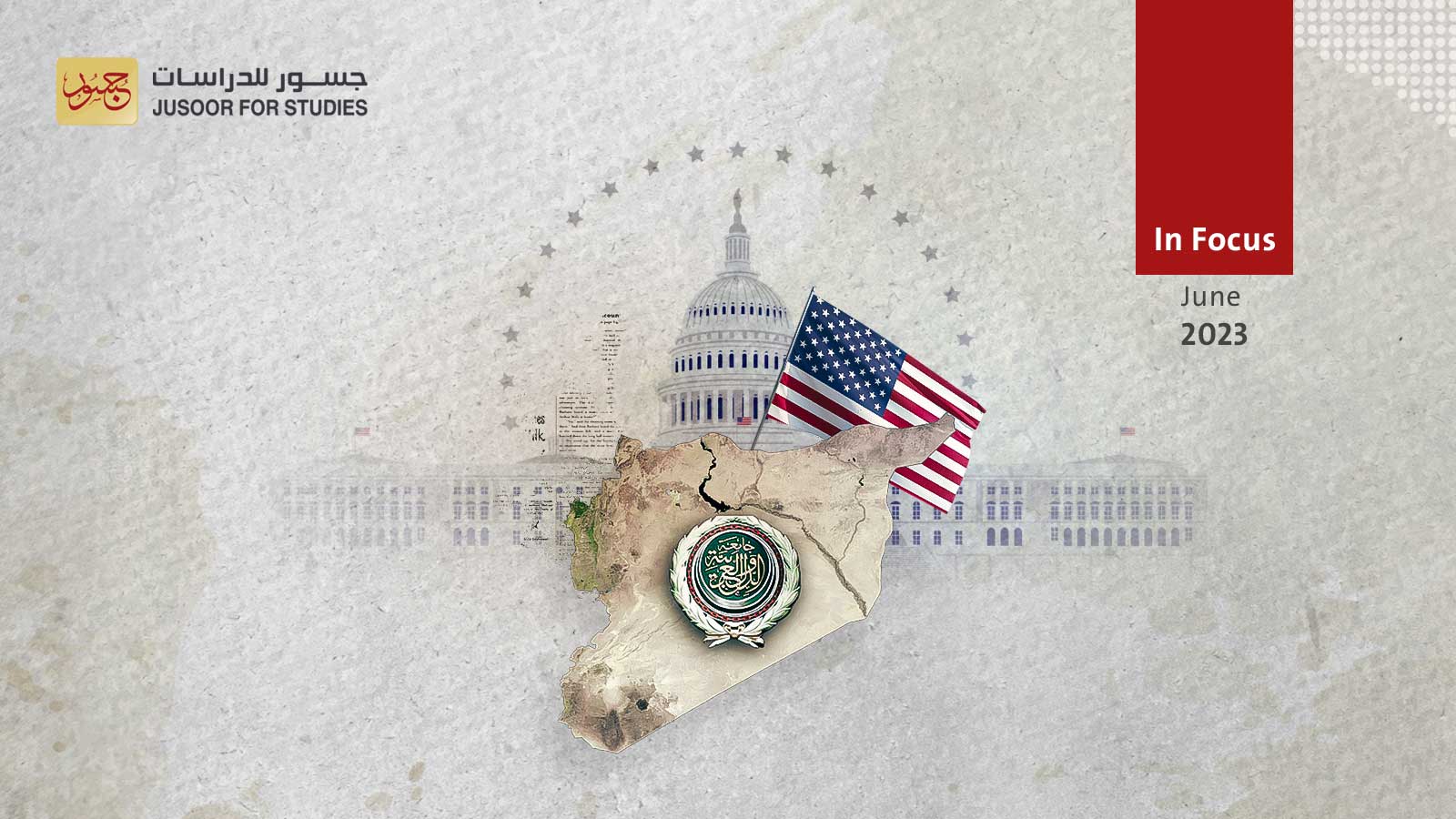Signs of American Efforts to Contain Arab Rapprochement with the Syrian Regime
The closing statement of the meeting between US Secretary of State, Antony Blinken and the foreign ministers of the Gulf Cooperation Council (GCC) states, held in Riyadh on June 7, 2023, emphasized the need for a political solution in Syria through the step-for-step approach in accordance with UN Resolution 2254 (2015). This approach was agreed upon during the Amman consultative meeting on Syria.
The ministers, in the statement, also affirmed the importance of creating suitable conditions for the safe, dignified, and voluntary return of Syrian refugees and displaced persons in line with the standards of the United Nations High Commissioner for Refugees (UNHCR). Additionally, they addressed the issue of arbitrarily detained individuals and missing persons as outlined in the Amman Consultative Statement and Resolution 2254, in coordination with all relevant parties.
The statement did not take into account the outcomes of the Jeddah consultative meeting held on April 14th. There was also a setback in reaching an mechanism to activate the Arab role in Syria, which prompted the GCC states, Iraq, Jordan, and Egypt to hold another meeting in Amman on May 1st. During this meeting, they adopted the launch of an Arab role based on the Jordanian Initiative.
In fact. there are significant differences between the outcomes of the Amman and Jeddah consultative meetings. The statement issued from Amman overlooked the UN Security Council resolutions regarding the political solution, the role of the United Nations in the political process, and the resolutions concerning the delivery of UN humanitarian aid across the border, as well as the role of the UNHCR in determining the criteria for suitable conditions to ensure the safe return of refugees and IDPs . On the other hand, the Amman statement stipulated that the political solution should be in line with Resolution 2254, in addition to the release of detainees and political prisoners, determining the fate of the missing persons, extending the resolutions for the entry of humanitarian aid, facilitating voluntary and safe refugee returns, releasing the kidnapped and detained individuals, and searching for the missing, all in cooperation and coordination with relevant UN entities.
In reality, the statement issued after the Amman c consultative meeting also drew inspiration from the Saudi Initiative, but it clearly linked the Arab role to the elements of the Jordanian Initiative, which is based on the step-for-step approach. This is because Riyadh did not provide details about the mechanism through which the Arab role in Syria can be activated, unlike Amman, which called for providing incentives to the regime to encourage it to make concessions.
The Jordanian Initiative, also known as the "non-paper document," was presented by King Abdullah to President Joe Biden in mid-2021, aiming to persuade the United States of the necessity of an Arab role in the Syrian solution through engagement with the regime and normalization of Arab relations with it. At that time, Washington did not provide a clear position on the initiative, despite granting exceptions to Jordan, Lebanon, and Egypt from the Caesar Act sanctions to facilitate the possibility of these countries reaching agreements with the regime to extend gas and electricity pipelines.
Currently, after the "US- GCC" meeting, the United States appears more prepared to express a clear position towards the Jordanian Initiative. It may show conditional support for this initiative and treat it as one of the containment policies towards the Syrian regime aimed at modifying its behaviour.
Overall, the focus on the Amman statement and complete neglect of the Jeddah statement, as well as the Arab Summit statement, reflects the position of the United States in rejecting any Arab role in Syria outside the framework of UN Security Council resolutions and the role of the United Nations in facilitating the political process. If this stance does not contribute to activating the UN-led political process, it will undoubtedly impact the feasibility of collective Arab normalization with the regime and prevent the regime and its allies from imposing their vision for a solution in Syria








